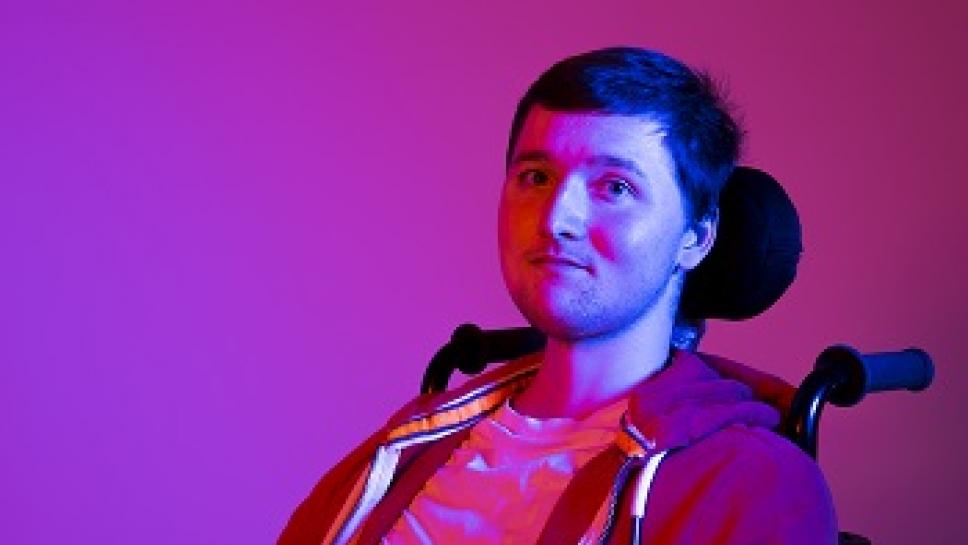
“2020 has given me the chance to recharge my batteries after finishing university - but what happens next?”
Jordon Mossom is a photography graduate from the University of Cumbria who used his final exhibition to build awareness and help others living with Duchenne muscular dystrophy.
I never in my wildest dreams thought I would study at university, let alone graduate with a 2:2 in my photography degree at the end of it.
It still feels like yesterday that I was nervously sat in the back of the car on my way to Carlisle on the first day of university.
But three years on, I've studied and graduated, sadly without the ceremony in Carlisle Cathedral that I was so looking forward to attending. It wasn't to be, with the restrictions meaning it got cancelled like many other events this year.
I remember the day I made the final trip to Carlisle back in March, a few days before the first national lockdown.
Living with a neuromuscular condition I was worried about what was happening, in case I somehow contracted the virus.
But I wanted to use the photography darkroom on the university campus so I spent the entire day in the darkroom. I developed a roll of film and also printed by hand for my project at the time, which would ultimately become Daytime Disability.
I didn't know whether I would get the chance to use the darkroom once I started shielding and the university went into shut down mode.
A few days later, everything changed. Lockdown happened and I went into shielding, meaning the plans I had to document my daily life using a film camera were shelved. I don't have a darkroom and had no way of being able to develop film at home.
I had to revert to using my digital camera instead which was very disheartening when I wanted to do my project in a traditional way, instead of relying on digital means!
In some ways the pandemic, the first and second lockdown and confusing restrictions have allowed me to have a break from everything. I'm recharging my batteries until I reach the crossroads of what I want to do next year.
I have thought about perhaps going back into education and doing an MA in journalism. I've always wanted to become a photojournalist and document day to day things, current affairs and disability issues.
Living with Duchenne means tiredness and fatigue play a huge factor in my daily life and how I structure my day impacts my energy levels.
I struggled with ever-changing timetables and full days at university, which took it out of me both physically and mentally at times. I'd sometimes end up nodding off on the taxi home and wasn't able to do much at the weekend or days I wasn't at university.
But, for the achievement of finishing my first degree, it was worth the effort and energy I put in.
So being able to have a break like this is a blessing, even though it means I need to find other ways to keep myself busy in the meantime.
I'm going to start selling prints, do a calendar for 2021 and create this year's Christmas card. I would also like to do some commissions and commercial work to keep developing my skills.
I hope to plan a second edition of Daytime Disability once the winter lockdown ends, documenting the things I couldn't do during the early part of the first lockdown. These include using public transport, the car, going to the shops, having adventures and being outdoors and much more.
There have been a handful of events and exhibitions that I've invited to take part in to keep me occupied.
I was selected from hundreds of other talented photographers and artists for the First Light 2020 exhibition in Manchester. It means the Daytime Disability project I spent so much time on will be put on display in a gallery, just how I imagined it would be. I can't wait to go and see it in person once everything is finalised!
Disability events such as the MDUK Muscles Matter seminar on education, and RAREfest 2020 that I'm both speaking and exhibiting at, have given me opportunities to show Daytime Disability to more audiences. People will see what it's like living with a neuromuscular condition from the perspective of someone with lived experience.
Never in my days did I think a photography project would create so many wonderful opportunities - it's very humbling.
